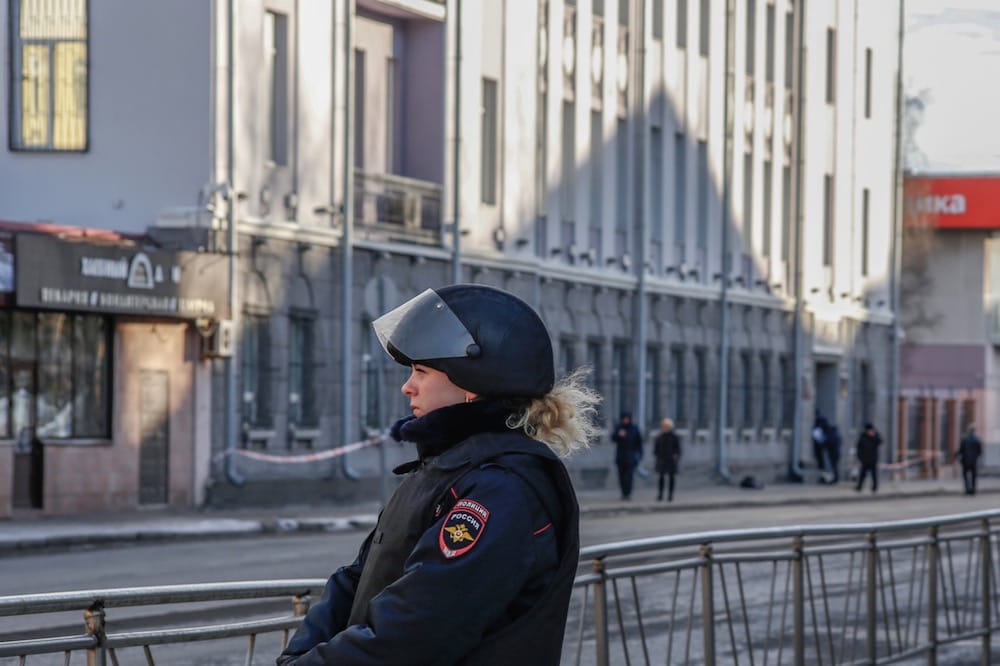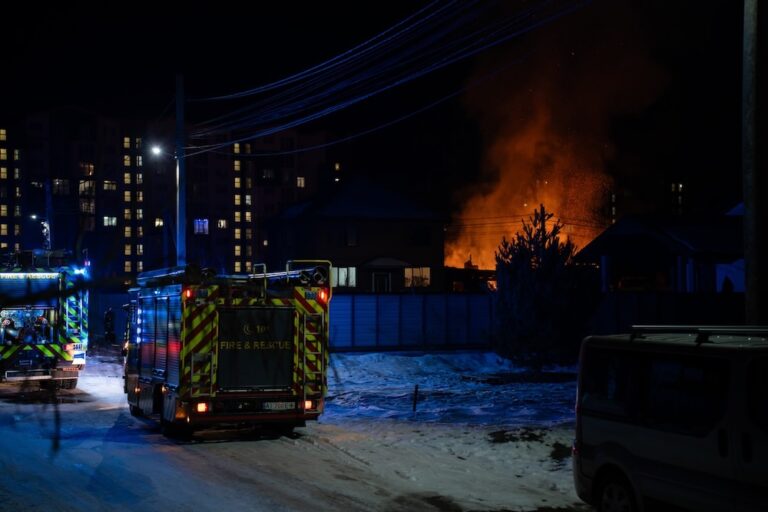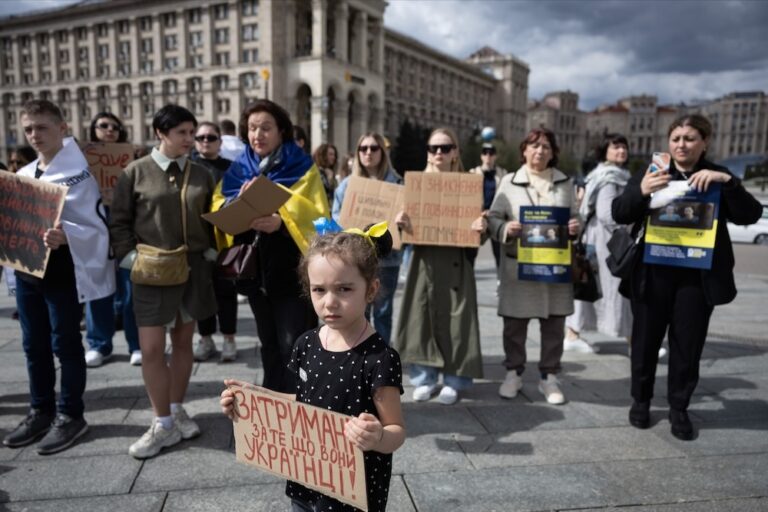Svetlana Prokopyeva is facing a lengthy prison sentence for "justifying terrorism" after she suggested that growing up in a repressive state could be a factor in radicalising young people.
This statement was originally published on cpj.org on pen-international.org on 6 November 2019.
The Russian authorities should drop all charges against Svetlana Prokopyeva, PEN International and PEN Moscow said today, as the journalist is facing a lengthy prison sentence for ‘justifying terrorism’ following comments she made on a radio show. The organisations further call on the Russian authorities to stop harassing and intimidating journalists who are reporting on her prosecution.
A print and broadcast reporter for Radio Svoboda (Radio Free Europe/Radio Liberty) and the Radio Ekho Moskvy local branch in Pskov (Echo of Moscow), Northwestern Russia, Svetlana Prokopyeva’s apartment was raided by masked police on 6 February 2019 and her phones, computers and files confiscated. She was brought to a local police station, where she was interrogated in the presence of a lawyer and later released. That same day, police officers searched the premises of the Ekho Moskvy branch in Pskov and seized some files from her computer. On 20 September, she was formally charged with ‘justifying terrorism’ under Article 205.2 of the Russian Criminal Code. She faces up to seven years in prison if convicted. A date for her hearing has yet to be set.
‘Svetlana Prokopyeva’s comments can no way be read to mean as if they are justifying terrorism by any means. The growing use of anti-terror legislation against those who dare to speak out in Russia is deeply worrying. The Russian authorities should immediately drop these bogus charges against Svetlana Prokopyeva and abide by their international obligations to uphold free expression,’ said Salil Tripathi, Chair of PEN International’s Writers in Prison Committee.
The case against Svetlana Prokopyeva stems from a programme aired on the local Ekho Moskvy radio station on 7 November 2018, about a 17-year-old boy who detonated a bomb inside the offices of the Federal Security Service (FSB) in Arkhangelsk, Northwestern Russia. Svetlana Prokopyeva argued that growing up in a repressive state could be a factor in radicalizing young people.
In July 2019, Svetlana Prokopyeva was placed on Russia’s list of ‘terrorists and extremists’; her bank accounts were blocked and her passport confiscated. In August, she filed a complaint with the European Court of Human Rights, arguing that the police search on her apartment violated the confidentiality of her sources. On 1 October, she issued a public letter in which she denied the accusations laid against her, calling it ‘the murder of freedom of speech’.
Journalists and media outlets reporting on the prosecution of Svetlana Prokopyeva have also been harassed. On 6 and 7 February 2019, the local Ekho Moskvy station and local news site Pskovskaya Lenta Novostei received fines of 150,000 roubles and 200,000 roubles respectively (approximately US$2,300 and US$3,000) for publishing a written version of Prokopyeva’s commentary online. The editors of both media outlets, who were amongst a dozen that published Prokopyeva’s October letter, were also reportedly both summoned by police following publication and asked to sign a non-disclosure agreement.
‘The case against Svetlana Prokopyeva can only be seen as an attempt to stifle free expression and intimidate journalists who seek to write the truth about today’s Russia. We are appalled by the harassment of journalists and media outlets reporting on her prosecution. We call for an end to these intimidation tactics and for the full respect of the right to a free press’, said Nadezda Azhgikhina, Executive Director of PEN Moscow.



